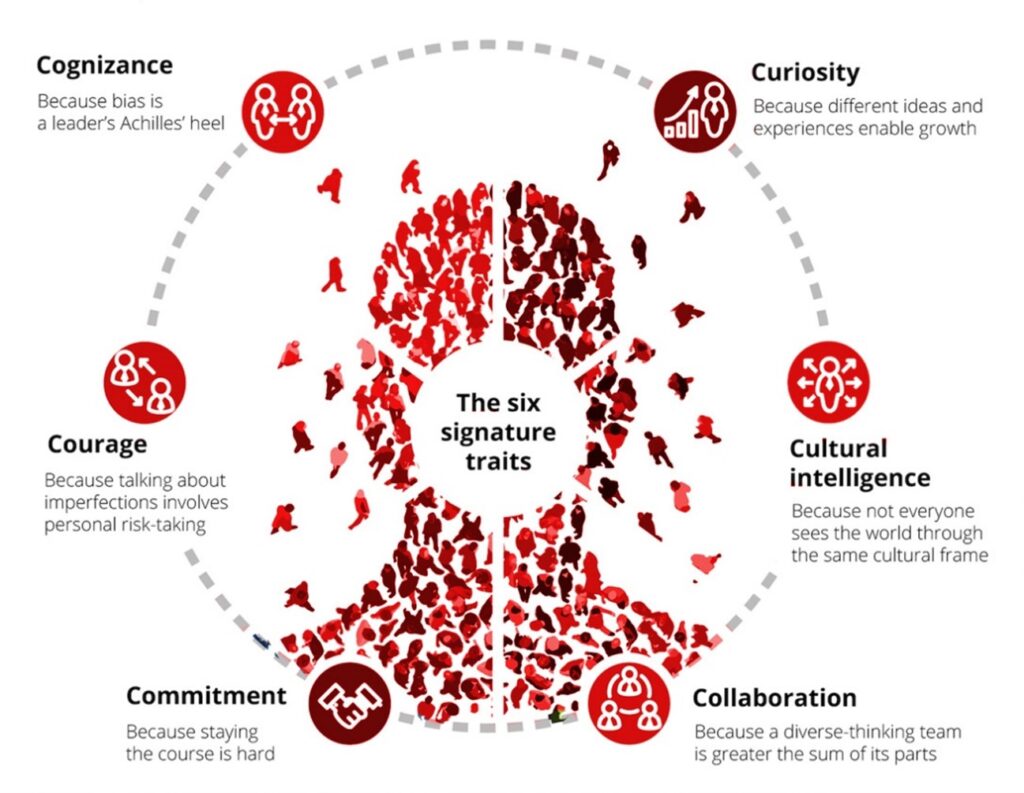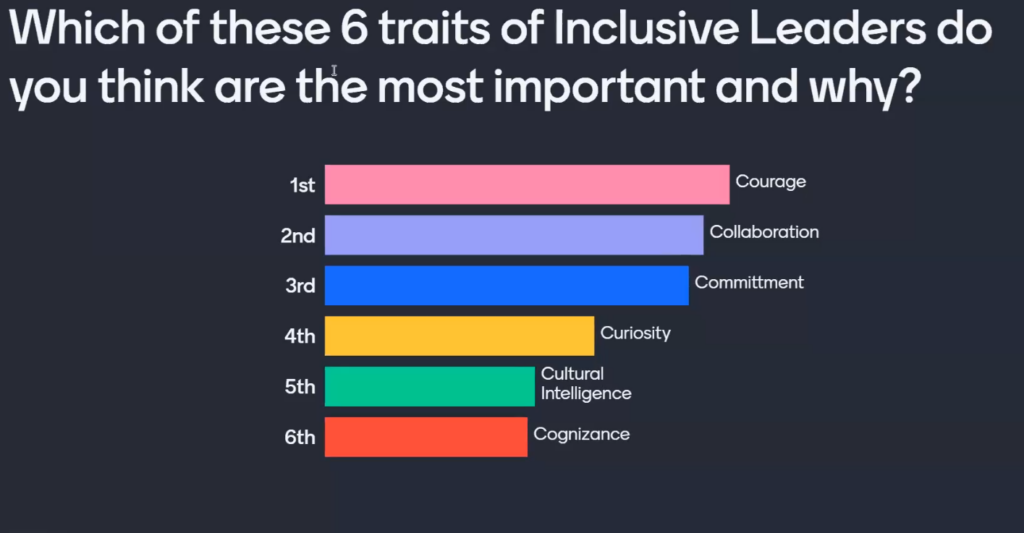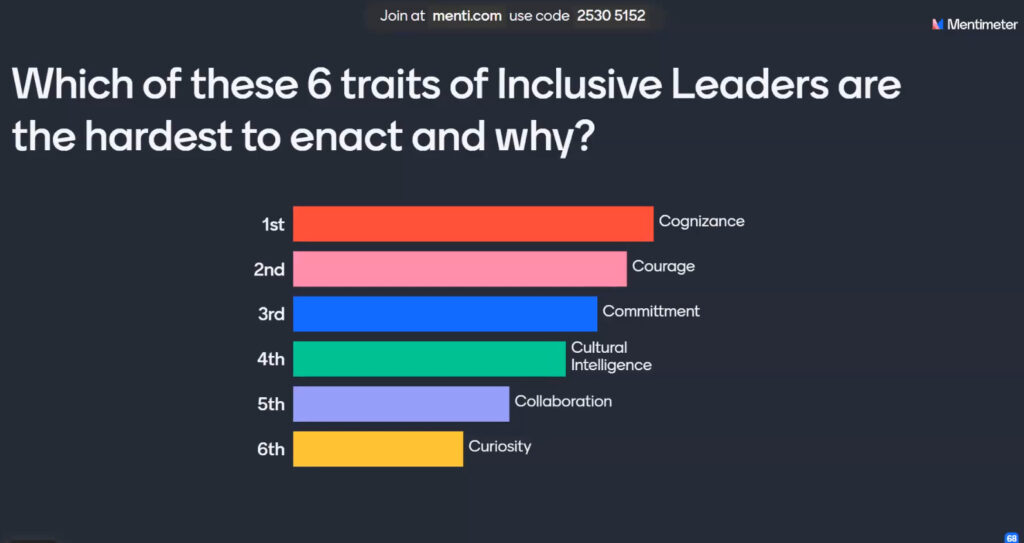The benefits of inclusive leadership extend beyond mere organisational success, positively influencing the well-being and satisfaction of individual employees. Let’s look at how you can cultivate the qualities of an inclusive leader.
First, let’s explore why organisations should care about developing inclusive leaders.
The Power of Inclusive Leadership: Insights from New Zealand Workplaces
Diversity Works NZ recently released a comprehensive report on diversity, equity, and inclusion (DEI) in New Zealand workplaces. The report highlights the significant impact of inclusive leadership on organisational culture, productivity, innovation, and overall success. Equally, it addresses the negative outcomes associated with a lack of authentic inclusive leadership including, lack of performance, reputational damage, and adverse effects on employee well-being, mental health, and job satisfaction.
Emphasising the significance of leadership accountability in supporting DEI initiatives, the report calls for increased transparency and accountability measures to actively foster diversity, equity, and inclusion. Key areas respondents deemed most important for organisations to address include gender, ethnicity, age, sexual orientation, and disability.
Whilst ranking what they think the most important DEI-related topics are in their organisation, respondents chose wellbeing and mental health, leadership development, and Te ao Māori (Māori culture) at the top.
Complementary data from Australian organisation Diversity Council of Australia has shown that inclusive workplaces are more likely to be highly effective and provide excellent customer service. Employees at inclusive workplaces are less likely to leave their jobs, experience negative impacts on mental health, or face discrimination and harassment. Plus, they are more likely to demonstrate innovation.
The business case for developing an inclusive culture is clear. But what exactly is inclusive leadership and what can you do to develop these leadership capabilities?
What is inclusive leadership?
At its heart, inclusive leadership is doing the right thing by people. An inclusive leader is someone who strives to create an environment where every team member feels welcomed, valued, and supported, regardless of their background, characteristics, or perspectives. Inclusive leaders not only recognise and appreciate individual differences but also actively work to leverage this diversity for the benefit of the entire group.
Inclusivity means not just that “we’re allowed to be there” but we are valued. I’ve always said: smart teams will do amazing things, but truly diverse teams will do impossible things. – Claudia Brind-Woody, IBM Vice President
The 6 signature traits of inclusive leaders
The below model developed by Deloitte University Press describes six signature traits of inclusive leaders.

If you are an inclusive leader, you show:
Commitment
You are committed to diversity and inclusion because these objectives align with their personal values and because they believe in the business case.
Courage
You speak up and challenge the status quo, and they are humble about their strengths and weaknesses.
Cognizance
You are mindful of personal and organizational blind spots and self-regulate to help ensure “fair play.” (e.g. similarity-attraction bias, in-group favouritism, attribution error, groupthink)
Curiosity
You have an open mindset, a desire to understand how others view and experience the world, and a tolerance for making mistakes and ambiguity.
Cultural intelligence
You are confident and effective in cross-cultural interactions.
Collaboration
You empower individuals as well as create and leverage the thinking of diverse groups.
Courage is important but can also be one of the hardest traits to achieve
In a recent poll we asked: which of the 6 traits of inclusive leaders do you think are the most important, and which are the hardest to enact? Here are the results:

Which of the 6 traits of inclusive leaders is most important? 1st. Courage, 2nd. Collaboration, 3rd. Commitment, 4th. Curiosity, 5th. Cultural Intelligence, 6th. Cognizance

Which of the 6 traits are the hardest to enact? 1st. Cognizance, 2nd. Courage, 3rd. Commitment, 4th Cultural intelligence, 5th. Collaboration, 6th. Curiosity.
These results provide valuable insights into the perceived significance and difficulty of incorporating specific inclusive leadership traits. But it doesn’t have to be difficult, we have put together some tips on how to start.
Here are our tips for actions you can take to develop inclusive leadership traits:
- Identify which of the 6 Signature Strengths you want to focus on improving.
- Make an effort to learn about the experiences of those not in your ‘in-group’ and other cultures.
- Initiate feedback from peers and team members about your behaviours to ensure you’re being consistently inclusive.
- Invest in further learning about inclusive leadership for you or your staff – learn more about our Inclusive Leadership in Action program.

